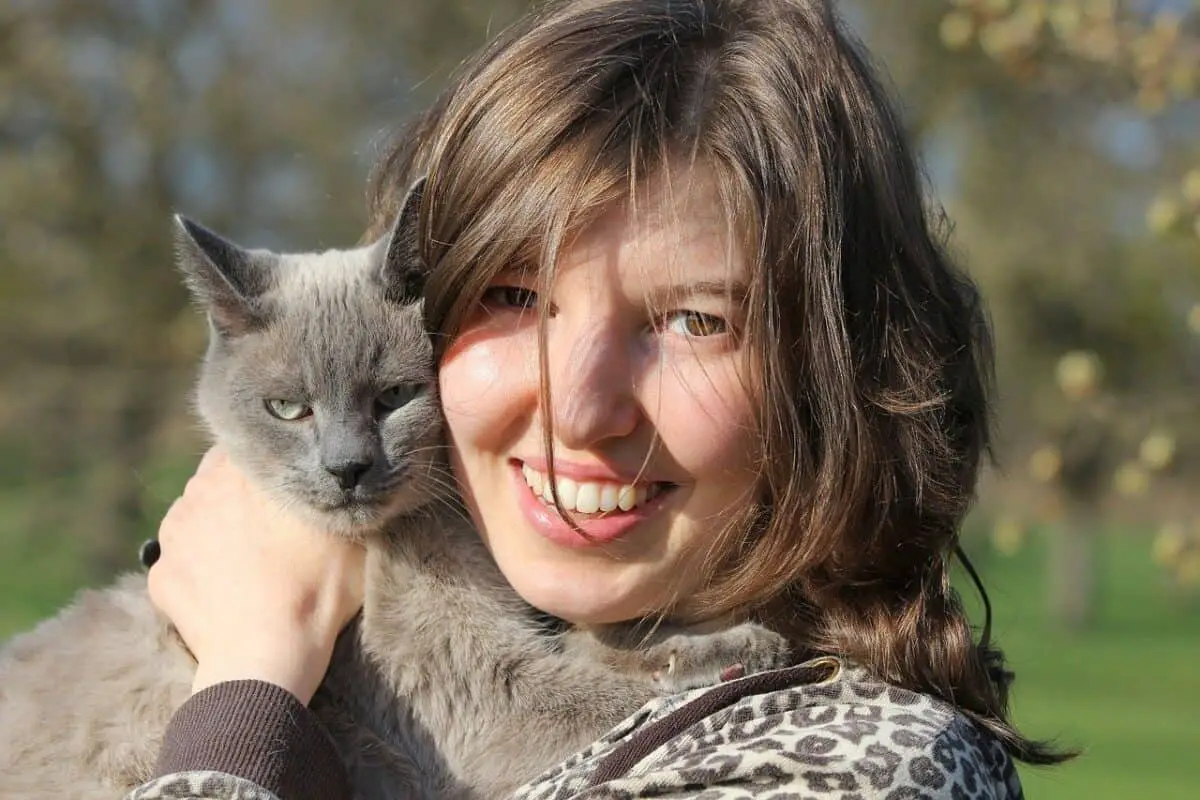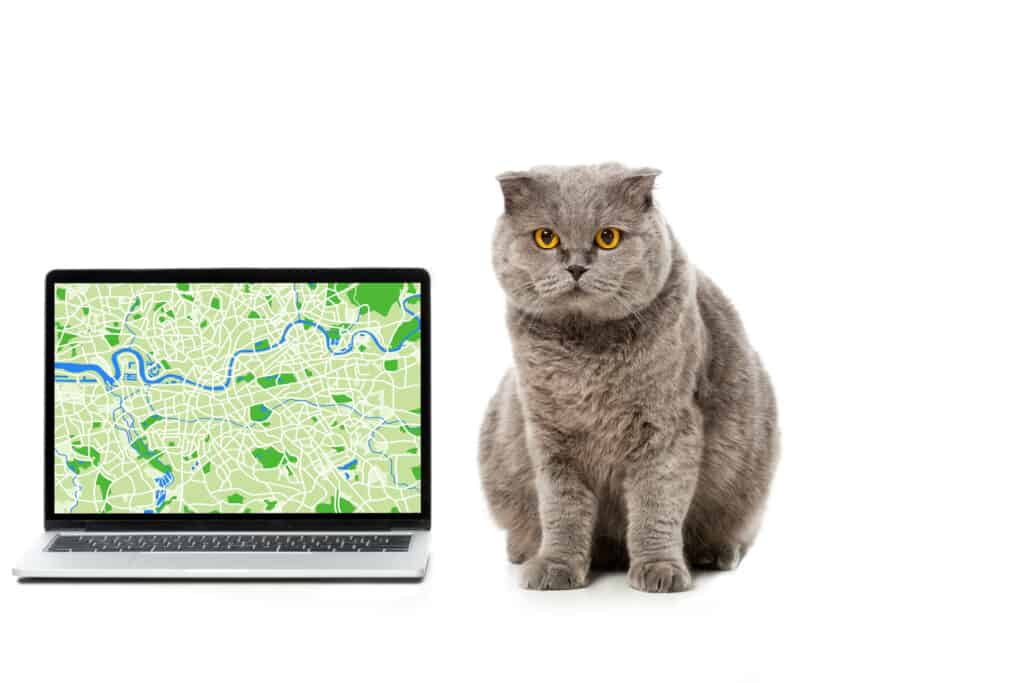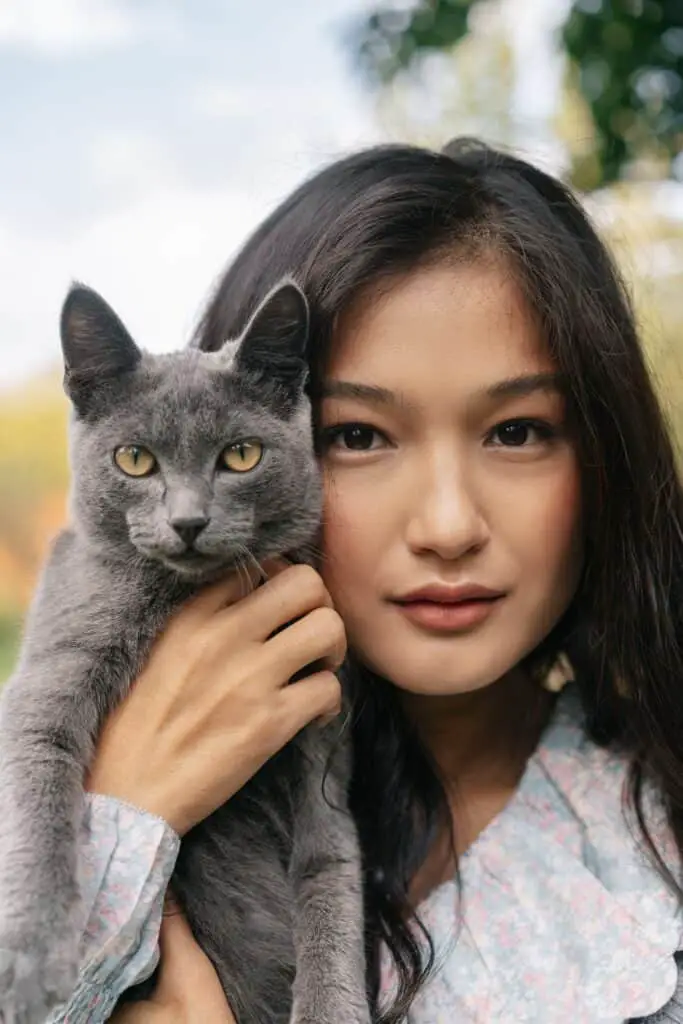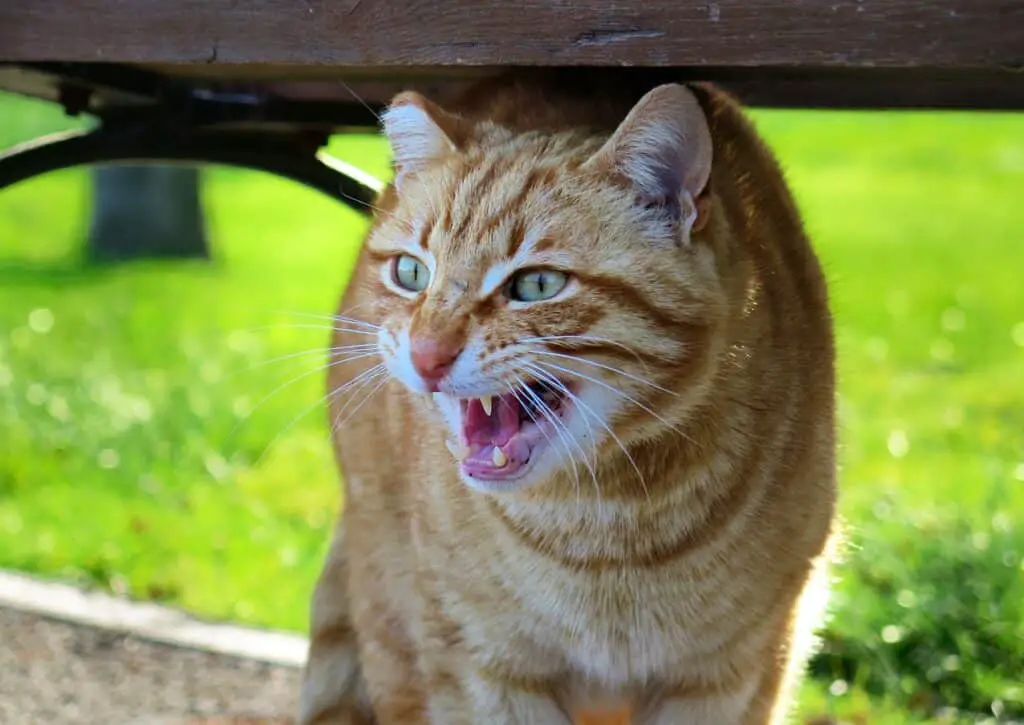We, as cat parents, know how affectionate cats are. Not those uninterested and aloof creatures people sometimes make them out to be.
Cats show their love in so many ways, and it’s been scientifically proven that they need us to take care of them. For that reason, you may wonder: “do cats think humans are their parents?”
How do cats see us, humans?
Cats don’t see us as their parents the same way we humans define a parent. However, cats consider their owner(s) their primary caretakers who provide food, shelter, safety, and love. Even though it often seems that cats are independent, they form a close bond with humans.
Do cats think humans are their parents?
According to research, cats build meaningful relationships with each other and humans.
Since, in domestic settings, humans are the primary caretakers of cats, it begs the question of whether cats see us as their parents.
To answer this question, we need to define what is meant by ‘parent’ in this context.
If you define a parent as a ‘biological parent’, then ‘no’, cats don’t think you gave birth to them. And besides, for a cat, that is something irrelevant.
However, when defining ‘parent’ as the one who feeds, loves, and cares for them, you could argue that cats see us as their parents.
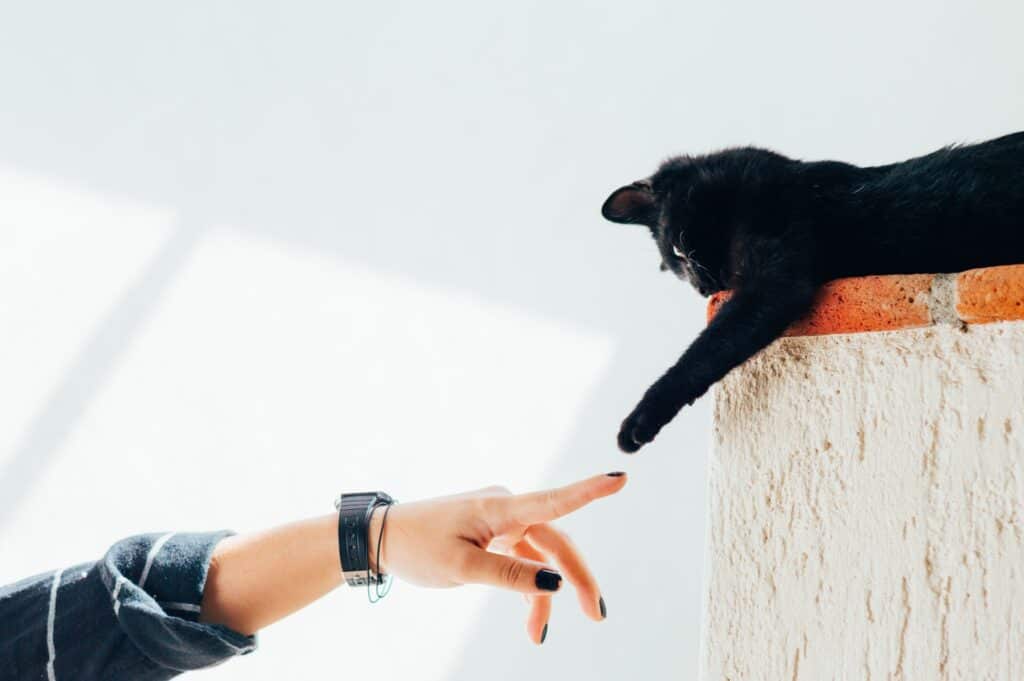
What is the bond between mother and kitten?
Once, as a kitten, they have weaned from their mother, they don’t acknowledge her as their biological mother. This is natural kitten-mother behavior.
For animals, the meaning of a birthmother is something irrelevant. The relationship between mother and child will still be close, but not extra special.
After a while, mother cats don’t continue to take care of their young as humans do.
Once the caregiver bond between mother and kitten has ended, at around six weeks after birth, kittens can move to other homes without missing their mum or being dependent on her for survival.
how do cats bond with us?
Because (domesticated) cats need someone to take care of them, other than their mother, they will consider their human as a parental figure or caregiver.
Because of this, they form a close bond with their pet parents and often choose one lucky ‘favorite person‘ as their mother figure.
On top of that, solid evidence shows our cats form loving bonds with their caregivers.
If you wonder how your cat shows they consider you as a mother figure, look for the following behaviors.
Your cat looks at you for guidance
More compelling evidence that a cat depends on its caregiver is that researchers have concluded that cats look for their owners in stressful situations and act depending on their owner’s emotional response.
When your cat feels uncomfortable or in danger, it will look for you and see how you respond to that situation. Based on your reaction, it will gauge whether its safety is at risk.
If your cat sees you panic or be startled, it will likely flee the scene, but if you stay calm, this will reassure your cat that everything is under control.
Cats form emotional attachments with us.
Based on popular belief, people often think cats don’t form strong bonds with their owners, but that’s far from the truth…
Research shows that most cats form secure attachments with their human or primary caregiver like human babies do with their parents.
This attachment style means a strong emotional relationship between two beings (people or animals). This relationship is based on trust, affection, and a sense of safety.
Interestingly, we now have solid, scientific evidence explaining what we, as cat parents, already knew, which is that cats bond with us, not unlike how dogs bond with their owners.
Parent figure or not, cats look to us for security and love. This may be why even adult cats show ‘kitten behavior’ (kneading, cuddling) with humans they trust.
Cats experience separation anxiety.
As described above, cats feel safe and secure with their human parent by having an attachment.
This result is that scientists have observed that cats can experience Separation Anxiety Syndrome (SAS).
In other experiments, cats have shown signs of stress when their owner (or the person they have an emotional bond with) leaves their presence.
This was observed when their person leaves for several hours, for example, to go to work, and even when left alone for just a few minutes.
This is even more evidence that cats and humans have a stronger bond than often thought, undoubtedly stronger than a casual observer would think.
All of this helps us better understand how cats perceive the world and their relationship with humans.
Do cats see humans as the leaders?
Although cats don’t see us as their parents, we cannot deny there is a strong emotional bond between a cat and its owner.
This would suggest that cats also look up to us for guidance and will follow our lead in the same way as dogs do.
Do cats see us as leaders of the pack?
Cats do not see their owners as leaders in the way dogs do. This is because cats don’t operate under an ‘Alpha figure’ or group leader. Cat communities have a far more complex social structure. Without a single leader, the group’s survival is a shared responsibility.
Therefore, you should not expect to (easily) teach your cat commands or follow your lead. Cats make up their own mind and usually only follow instructions if there is something in it for them.
In small colonies, cats are constantly fighting for territory. But they also perform bonding activities with the cats they like. Humans are seen more as caregivers rather than leaders.
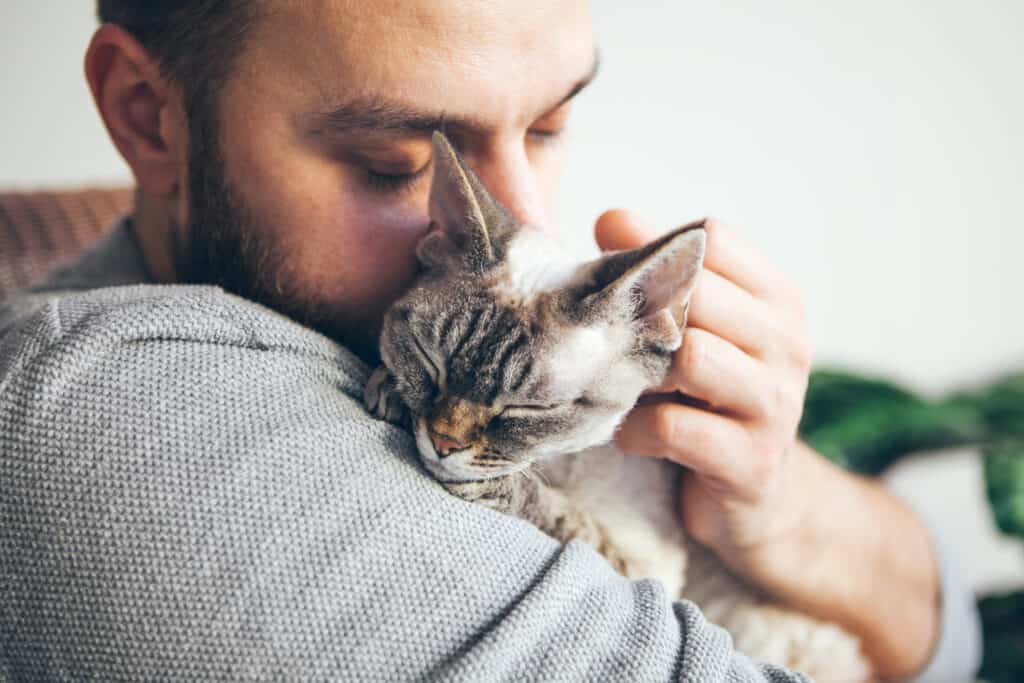
How can I develop a close relationship with my cat?
Developing a relationship with your cat usually happens naturally as you care for your feline furry friend.
A bond between you will naturally develop by feeding your cat, tending to its needs, and showing love and affection. It usually does not need special attention other than what a loving cat parent would already do.
However, there may be situations where a conscious effort is needed. For example, when giving an adult cat a new home or taking care of an abused cat or a stray.
Here are some things you can do to develop a close relationship with your cat.
- Give it space: Give your cat time and space. Forming a bond does not happen when forced. Cats need to feel relaxed and want to be in control. Make sure it is comfortable, and will come to you when ready.
- Get to know your cat: Every cat is different, so be considerate and spend some time with your cat. Discover what your cat likes and dislikes. This goes for food, behavior, toys, daily routine, the level of affection they are comfortable with, etc… Basically, get to know all aspects of your cat’s life and preferences.
- Feed and take care of them: Cats develop a close relationship with the person who feeds them. Take care of your cat, and you will soon feel their love and display of affection.
- Play with your cat and show affection: Playtime is vital for cats. Apart from the physical and mental advantages playing has for cats, it also strengthens your bond.
What are signs my cat has bonded with me?
When you’re successful in building a bond with your cat, it will reward you with the following displays of affection.
Cats communicate differently from humans. Once you understand their language, you realize how affectionate and caring they can be.
Sometimes they act like kittens, and sometimes it feels like they’re taking care of us. Here are some signs your cat sees you as a parent:
- They knead you.
- When you enter a room, they greet you.
- They meow at you.
- Headbutting.
- Your cat lets you touch it.
- Your cat makes eye contact with you.
- Showing you their belly
- Purring in your company.
- They follow you.
- Your cat licks you.
- Your cat sleeps on top of you.
Love Cats?
Then you will love our other content as well. Have a look at these posts on our website.
-
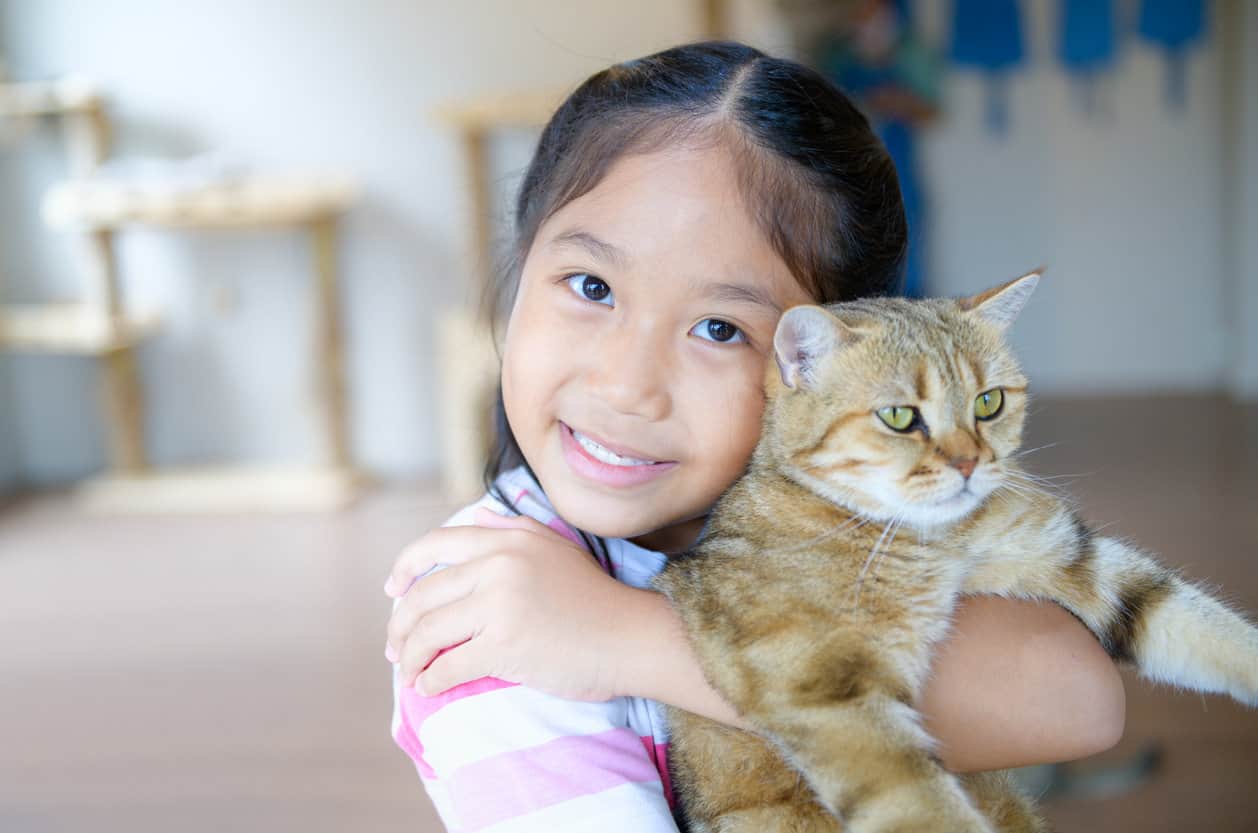
10 Ways to Make Your Cat Live Longer
The oldest cat to ever live passed away at the old age of 38. On average, household cats live between […]
-
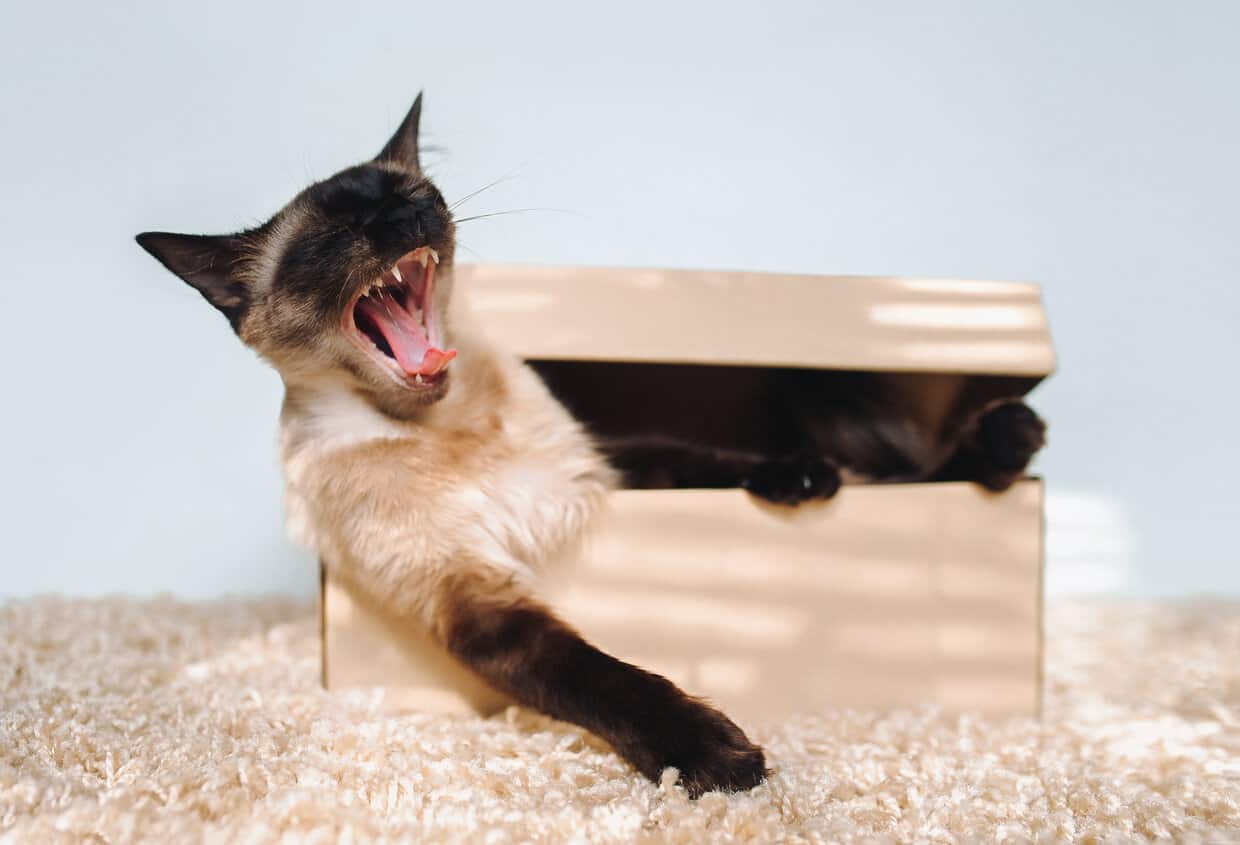
12 Reasons Why Siamese Cats Cry at Night
Siamese cats are a popular breed of cats that many people choose to have as pets. Perhaps you have heard […]
-
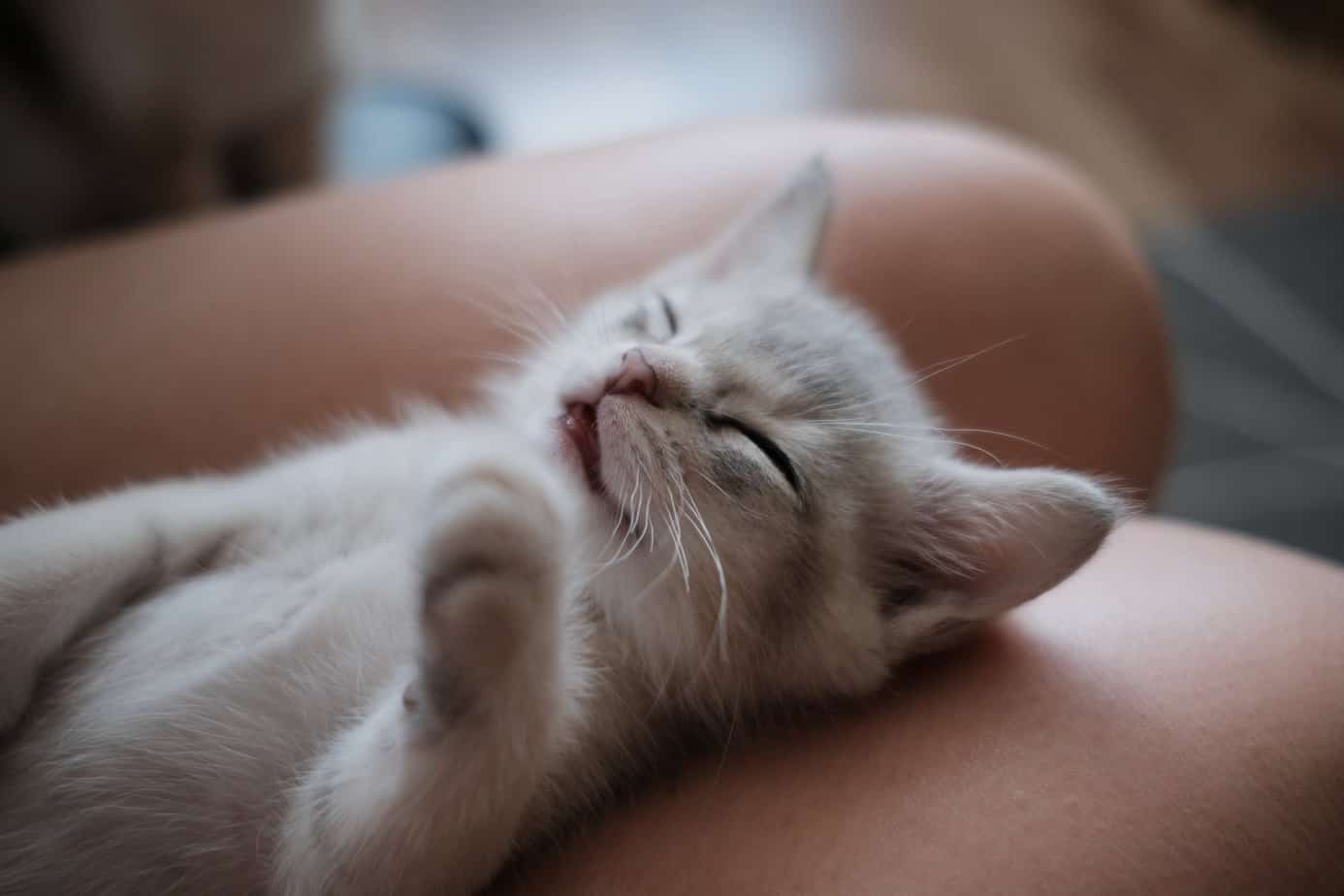
15 Incredible Ways That Cats Show Affection For Humans
Wondering how cats show their affection for humans? We have listed several incredible ways that cats are trying to show their love for us.
Sources
Attachment bonds between domestic cats and humans
Vocal recognition of owners by domestic cats
Social referencing and cat-human communication
Separation Anxiety in Cats

